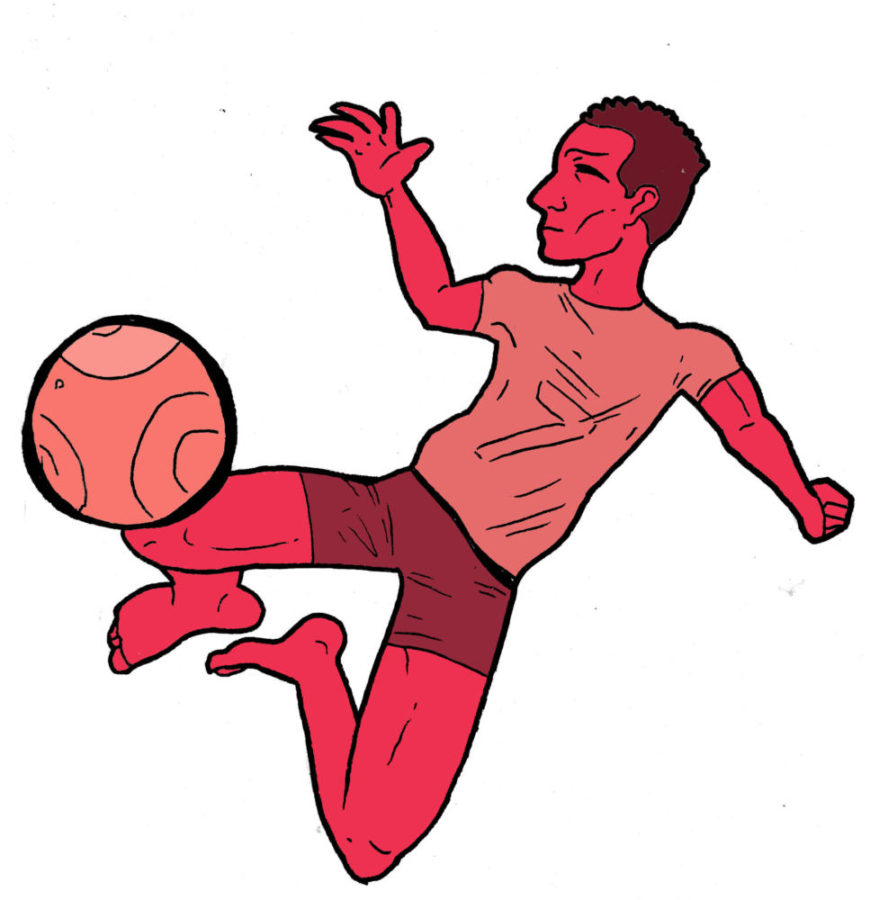The 2018 World Cup isn’t a priority for most Americans since the United States failed to qualify for the competition, but this year’s games have the potential to be one of the most entertaining tournaments in years.
The tournament — hosted in Russia this year — kicks off June 14 at 11 a.m. with the first game between Russia and Saudi Arabia. The tournament starts with 32 teams divided into eight groups. The teams play a series of games against each other, with two teams from each group advancing. The remaining 16 teams play in a single elimination tournament, culminating in the title game July 15 at 11 a.m. in Moscow.
All of the top teams are filled with star players who are experienced on the world stage. For the most part, the groups will play out as expected — but star players doesn’t always mean star teams.
Group A
Group A consists of host nation Russia, as well as Saudi Arabia, Egypt and Uruguay. This group has a lot of firepower between three world-class strikers.
Mo Salah is a promising star for Egypt — he set the record for most goals in a 38-game season with 32 last season, and won both the PFA and FWA Player of the Year.
But Uruguay has two star players on its side — Edison Cavani and Luis Suarez. Cavani had a prolific season with Paris Saint Germain, leading Ligue 1 in goals with 28 goals in the league and 40 in all competitions. Suarez saw success with Barcelona, scoring 33 goals in all competitions.
Russia will be backed by the support of the home fans, but it will not be enough, seeing it lacks the quality. Saudi Arabia also lacks the talent to compete with the intensity of Uruguay and the skill of Egypt.
Faced with Uruguay’s stout defense, led by Atletico Madrid and Diego Godin, Egypt will have to put up a fight to win — and even still, Uruguay is more likely to end up on top.
Group B
Group B holds two European heavyweights — Portugal and Spain. This group has the potential to be explosive, since Portugal boasts a few star players and Spain has a well-rounded squad of dynamic players.
It’s easy to put faith in Portugal — it has players like forward Cristiano Ronaldo, a player who scored 45 goals in all competition. But its team is still a step down from Spain, which has world-class talent on all areas of the field.
The other two teams in the group — Iran and Morocco — just don’t have the talent to compete with the European powers. Spain will likely edge out Portugal and top the group.
Group C
France is a favorite to win Group C, but the second spot is up for grabs between Peru, Denmark and Australia.
France’s roster contains talented players like forwards Antoine Griezmann, Kylian Mbappe and Thomas Lemar, and midfielders Paul Pogba and N’Golo Kante — this lineup will help the team win the group with ease.
Peru will put up a fight for — and likely take — the No. 2 spot. Its captain and best player, striker Paolo Guerrero, just had his suspension lifted, and the team is a hard one to beat when performing well.
Group D
Argentina, Iceland, Croatia and Nigeria make up Group D. Some have called it the “group of death” — or, the most challenging group in the tournament.
Argentina — the 2014 World Cup’s runner-up — is likely to win the group. Its leader, forward Lionel Messi, won Europe’s Golden Boot this past season, scoring 47 goals in all competitions. With him leading the team, Argentina is bound to end up on top.
Iceland doesn’t have any standout players, but the team works well together. With its unified playing style and overwhelming support from fans, Iceland has a chance at the No. 2 spot.
Group E
Though Brazil is the favorite of Group E, the team seems to be more evenly matched since fullback Dani Alves suffered a season-ending knee injury. His absence won’t necessarily hinder Brazil’s ability to win the group, but might hurt the team down the road.
Serbia will rely on its defensive presence to secure the No. 2 spot, while Switzerland and Costa Rica will likely not advance.
Group F
Group F includes defending champion Germany, as well as Mexico, Sweden and the Korean Republic.
According to FIFA, Germany is currently ranked number one in the world. The German roster of experienced world-class talents with the desire to defend their title should easily allow the team to come out on top. Mexico plays a hard, fast style that puts teams on their heels, which will likely earn the team the No. 2 spot.
Group G
European heavyweights should reign supreme in Group G — headlined by Belgium, England, Tunisia and Panama.
Belgium is at the height of its golden generation, poised to go far in this year’s tournament. Its attacking lineup, led by Premier League stars — midfielders Eden Hazard and Kevin De Bruyne, and forward Romelu Lukaku — should have no problem scoring this summer.
England will likely see some success — its roster is young and brimming with talent, speed, skill and potential. It lacks experience and consistently loses focus at key moments, but it’s enough to secure the No. 2 spot.
Group H
This group lacks a dominant country but yields teams that have been consistently competitive, with Poland, Colombia, Senegal and Japan.
Japan is a very technically sound team that plays an effective, calculated game of soccer. But it just doesn’t have the firepower to compete with Colombia and Poland.
Colombia will utilize the talents of attacking midfielder James Rodriguez, while forward Robert Lewandowski will lead Poland. Both players are very skilled at scoring goals and creating chances, something their teams will rely on heavily. However, since Colombia is a more complete team, it should win the group, with Poland finishing in second.


